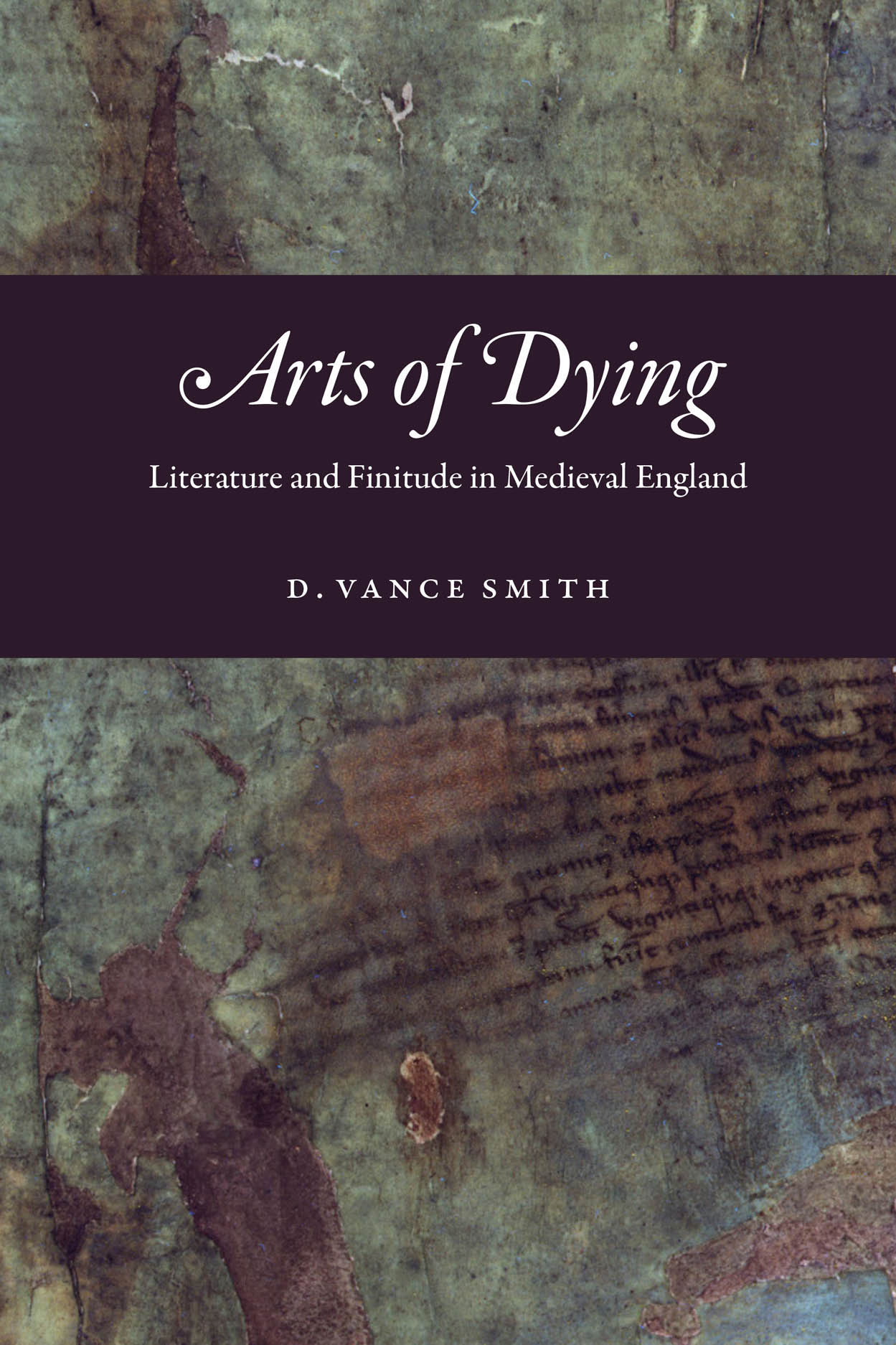Arts of dying: literature and finitude in medieval England
 People in the Middle Ages had chantry chapels, mortuary rolls, the daily observance of the Office of the Dead, and even purgatory—but they were still unable to talk about death. Their inability wasn’t due to religion, but philosophy: saying someone is dead is nonsense, as the person no longer is. The one thing that can talk about something that is not, as D. Vance Smith shows in this innovative, provocative book, is literature.
People in the Middle Ages had chantry chapels, mortuary rolls, the daily observance of the Office of the Dead, and even purgatory—but they were still unable to talk about death. Their inability wasn’t due to religion, but philosophy: saying someone is dead is nonsense, as the person no longer is. The one thing that can talk about something that is not, as D. Vance Smith shows in this innovative, provocative book, is literature.
Covering the emergence of English literature from the Old English to the late medieval periods, Arts of Dying argues that the problem of how to designate death produced a long tradition of literature about dying, which continues in the work of Heidegger, Blanchot, and Gillian Rose. Philosophy’s attempt to designate death’s impossibility is part of a literature that imagines a relationship with death, a literature that intensively and self-reflexively supposes that its very terms might solve the problem of the termination of life. A lyrical and elegiac exploration that combines medieval work on the philosophy of language with contemporary theorizing on death and dying, Arts of Dying is an important contribution to medieval studies, literary criticism, phenomenology, and continental philosophy.
zum Buch im ULB-Katalog
zum Buch auf der Verlags-Website
Absent rebels: criticism and network power in 21st century dystopian fiction
 Financial crises, the Covid-19 pandemic, and the ongoing climate catastrophe – regularly, it seems, the 21st century is hit by existential threats. One effect of this crisis-proneness of our present is a renaissance of dystopian thinking: Dystopia is back on the bestseller lists around the globe.
Financial crises, the Covid-19 pandemic, and the ongoing climate catastrophe – regularly, it seems, the 21st century is hit by existential threats. One effect of this crisis-proneness of our present is a renaissance of dystopian thinking: Dystopia is back on the bestseller lists around the globe.
Absent Rebels: Criticism and Network Power in 21st Century Dystopian Fiction focuses on the complex relationship between dystopia, network power and neoliberalism. It explains why rebellion against a dystopian system is absent in many contemporary dystopias and how we erect dystopias although we have only the best of intentions. Based on the conviction, that we can start to build a better world by avoiding the mistakes of our past and present, this analysis also aims to help readers understand modern power mechanisms and explains how to overcome them in our own daily lives.
zum Buch im ULB-Katalog
zum Buch auf der Verlags-Website
Weitere Titel können Sie in unseren Neuerwerbungslisten für die Anglistik entdecken!
